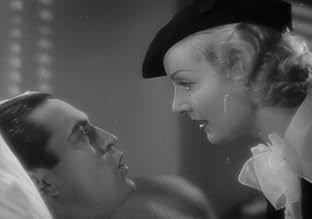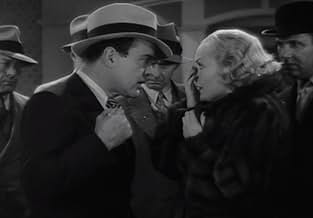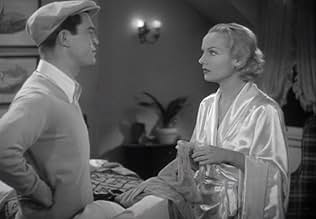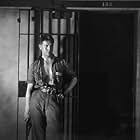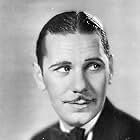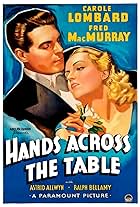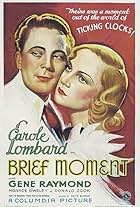After the adversary of a bootlegger has him killed, he takes up with his widow, a gold-digging chorus girl, but a handsome bodyguard is also determined to win her over.After the adversary of a bootlegger has him killed, he takes up with his widow, a gold-digging chorus girl, but a handsome bodyguard is also determined to win her over.After the adversary of a bootlegger has him killed, he takes up with his widow, a gold-digging chorus girl, but a handsome bodyguard is also determined to win her over.
Norman Ainsley
- Waiter
- (uncredited)
Eddie 'Rochester' Anderson
- 2nd Bootblack
- (uncredited)
Irving Bacon
- Weight-Guesser
- (uncredited)
Jack Baxley
- $100 Rercipient
- (uncredited)
Brooks Benedict
- Wedding Guest
- (uncredited)
Francis X. Bushman Jr.
- Mirabelle's Pickup
- (uncredited)
Jules Cowles
- $100 Recipient
- (uncredited)
Frank Darien
- Mr. Bartlett
- (uncredited)
Max Davidson
- $100 Recipient
- (uncredited)
Gordon De Main
- Police Sergeant
- (uncredited)
Clay Drew
- Stage Doorman
- (uncredited)
- Director
- Writers
- All cast & crew
- Production, box office & more at IMDbPro
Storyline
Did you know
- TriviaThis was one of Carole Lombard's least favorites among her own filmography. Chester Morris also thought during filming that the movie was a "turkey". Sadly, the newly enforced Production Code had laundered the script beyond recognition, and dulled its impact. Nine months earlier, it would have been a different story.
- GoofsThe story is supposedly taking place in New York City, but during the automobile chase near the end of the film the principals in their Mercedes drive up Grand Avenue in Los Angeles, passing the Mayflower Hotel and in and out of the Grand Central Garage. In another scene they pop into a hotel lobby with Hotel Stowell, located on South Spring Street, in Los Angeles, in the background. (In fairness, Los Angeles was not a popular vacation destination until the 1950s, so the vast majority of moviegoers at the time would not have noticed this.)
- Quotes
Mirabelle: There's no sense to marrying a racketeer. They don't live long.
Mary Magiz: Well, what's wrong with that?
- ConnectionsFeatured in The Big Parade of Comedy (1964)
- SoundtracksMississippi Honeymoon
Music by Walter Donaldson
Lyrics by Gus Kahn
Sung by Arthur Jarrett in the show
Incorporated often into the music score
Featured review
This lesser-known film is a very pleasant, not really expected surprise in the early career of Carole Lombard, at the moment it was really starting to take off. It offers her as many opportunities to start showing the full range of her acting skills as more well-known films of the same period such as Twentieth Century - while being clearly less ambitious, I find it also much more tightly scripted than the latter and her co-star Chester Morris whom I did not know is surprisingly good, while all supporting characters are top-notch as well.
Basically this is just a comedy in the mob's' world of the Prohibition, though, but it is both a fast-paced and smartly-acted one, and with two main characters which actually are fairly original.
Mary is a gold digger with no more moral compass than a boiled clam. She considers herself fully entitled, by the rights of a penniless lonely woman who has to fend for herself, to put her hands on any pot of gold no matter how - so far nothing that original, one thinks of the gritty character of Barbara Stanwyck in Baby Face the same year. However Carole Lombard makes Mary so breezily, unconsciously and innocently amoral, if one may say, that even when she drives her would-be gangster benefactors to kill one another in order to provide her with the booty she greedily and self-mindedly covets, nobody seems really able to keep her a grudge. That makes her a sort of screwball cousin of Lulu / Pandora, the innocent fatal woman who made an unforgettable icon of Louise Brooks. She is toxic, even lethally so, but that's not really her fault - and she's so pretty...
One who is not really able to blame her is her co-hero, the even more originally scripted bodyguard-cum-bookkeeper (!!) character strangely nicknamed Office Boy. This is a hero who talks a lot and acts fairly little, though he knows how to keep being respected by the violent mobsters he knowingly works for, while refusing to get involved in the dirty parts of their trade. But, mind you, not because he feels them repulsive, if that was the case he should have quit much earlier. No, rather because he feels this is not worth the risks to him, he prefers the idea of a fixed, not so big though adequate salary, which he can earn without having to spoil his hands. Not a full-fledged gangster, certainly, but not really a knight in a shining armour of moral rectitude either.
Office Boy insistently tries to dissuade Mary of marrying Shoots Magiz, the top gangster who is really crazy about her and later becomes an irreproachably devoted husband - again not for moral reasons but just because as a partner for a long and quiet married life, Shoot offers limited perspectives, which gets confirmed to have been quite true. Later on as he tries again to object to Mary's shenanigans finding ways to get rich with dirty money, his arguments keep on being the same - not that her ways are evil, but that they are very likely to put her into deep trouble. True again. And when he leaves the mob, one cannot be too sure that it is because he finally saw the light about these evil ways - rather that the gang war makes them too unsafe, and he prefers quitting once he has put aside enough money to live the quiet, modest life he craves. Interesting mob character indeed.
- How long is The Gay Bride?Powered by Alexa
Details
- Runtime1 hour 20 minutes
- Color
- Aspect ratio
- 1.37 : 1
Contribute to this page
Suggest an edit or add missing content




